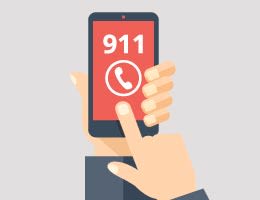Health library
Back to health libraryWhen pain is a medical emergency

Learn how to recognize the kind of pain that needs immediate treatment.
We all have aches and pains from time to time. Many are minor enough to be treated with over-the-counter medications or a doctor consultation. But what if the pain is severe? It could be a sign of a medical emergency.
Knowing how to recognize the kinds of pain that require emergency care—and getting help right away—is extremely important. It could save a life.
Recognize the signs
Here are some pain symptoms that require emergency medical attention, according to the American Academy of Urgent Care Medicine and the American College of Emergency Physicians:
- Any sudden or severe pain.
- Any chest pain that lasts more than two minutes or goes away and comes back.
- Abdominal pain that lasts more than two minutes, is unusual or is accompanied by a fever.
- A new, severe headache.
- Back pain with loss of bowel or bladder control; trouble urinating; or signs of an infection, such as a fever or chills.
Don't take chances
Symptoms like these are always a reason to call 911 or go the nearest emergency department if you or anyone else experiences them.
Don't try to diagnose the pain or downplay it. That's the job of trained medical professionals. Remember: Delaying care could be life threatening.
Learn more about recognizing and managing pain.
Reviewed 4/4/2025
